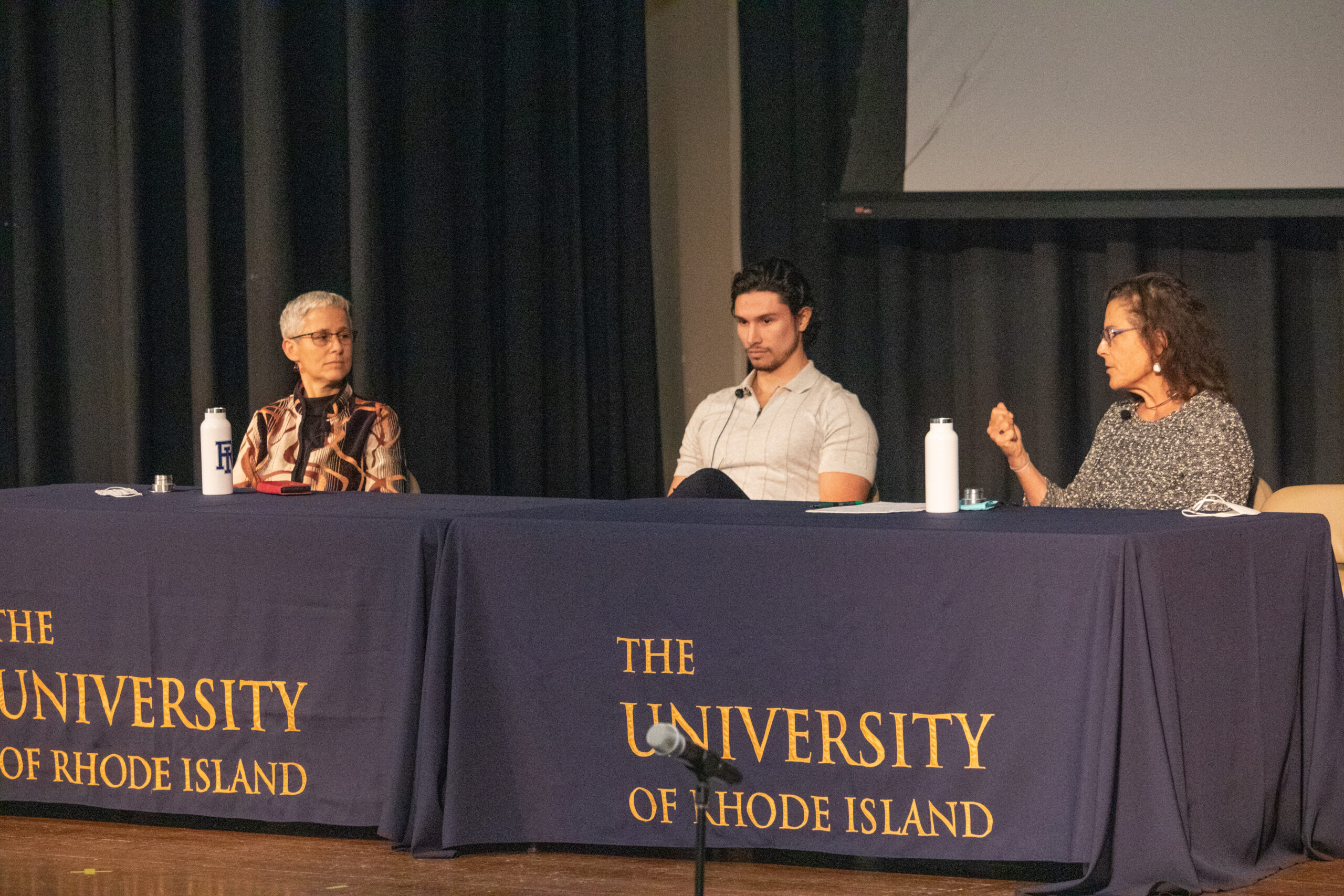Panel discusses climate equity in third lecture
This week’s third installment of URI’s Honors Colloquium discusses possible solutions to rising sea levels. PHOTO CREDIT: Erin Brown
Climate change and sea-level rise are an impending danger to New England residents, and climate justice leaders are working to increase accessibility and education on these problems in underrepresented communities.
The third lecture installment of the University of Rhode Island’s Honors Colloquium discussed these issues in a panel discussion on Oct. 5.
Pam Rubinoff, Elder González Trejo and Julie Wormser were on the panel moderated by Megan Hall and discussed some possible solutions to rising sea levels. All three panelists are working on implementing climate resilience around the New England area, from person-to-person interactions all the way to creating policy.
The panel members stressed that climate change can be a scary topic and often seems unattainable to combat unless you are a global leader, but every citizen can make a change or have an impact in some way.
González Trejo works hand in hand with communities through the Woonasquatucket River Watershed, specifically focusing on the Olneyville neighborhood of Providence, as he has personal ties to the neighborhood.
A key part of González Trejo’s work is working on an initiative called “New Voices.” The goal of the initiative is to connect citizens, specifically Latin women, with their leaders so that their voices are heard in order to facilitate climate equity.
“Climate resilience needs to be a universal movement, not an elitist movement,” González Trejo said. “We need to work together towards a common goal.”
A big factor preventing lower-income community members from contributing to community outreach are the barriers that are more easily accessible to those who have a higher income, according to him. These barriers include transportation, childcare, lack of education and language barriers.
In order to make these opportunities of working in climate resilience more accessible, the Woonasquatucket River Watershed provides transportation as well as childcare for the women in New Voices. Additionally at every meeting a translator is present in order to help translate English into Spanish and simplify more technical scientific language, according to González Trejo.
Wormser is also focusing on creating climate equity through her work at the Mystic River Watershed Association (MRWA) but is coming from a legislative and governmental angle. The main goal of the MRWA is to open communication between neighboring communities and create more combined efforts instead of each community doing things differently.
“You can’t deal with climate challenges only within your physical boundaries, the climate doesn’t acknowledge those,” Wormser said.
Rubinoff, as part of her work for the URI Coastal Resources Center, has been studying what is going to be most affected by climate change and working to explain why citizens should care about the impending danger.
“We live, work and play in areas that we value, we have traditional livelihoods and traditional gathering of shellfish, we enjoy going to the beach,” Rubinoff said.
All of these things are threatened by the effects of climate change such as increased flooding, increased frequency and severity of storms as well as the change in when seasons occur.
URI has helped develop tools to show current risks and future of estimated changes to the Rhode Island landscape such as the program Storm Tools.
“These tools are used to help show community members and planners see what the future could hold, because when you’re looking at planning scenarios you need to look at 30 years from now and what your community will look like,” Rubinoff said.

